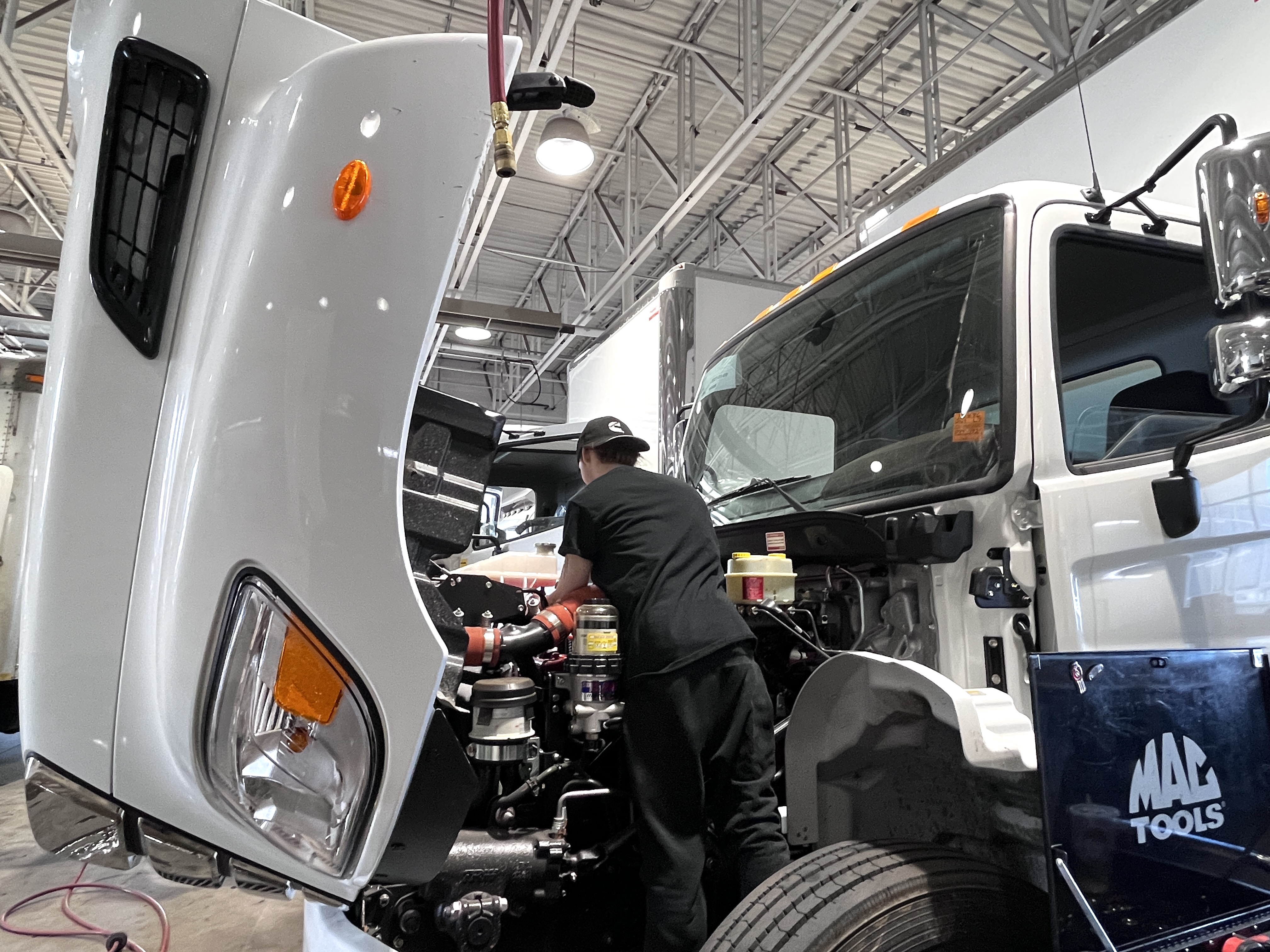Cold Weather Do's and Don'ts for Hino Trucks in Ontario, Canada: Ensuring Your Truck Starts and Performs Well in Winter Climates

Winter in Ontario can be tough on trucks, with freezing temperatures, icy roads, and harsh weather conditions that can severely impact your truck’s performance. For fleet owners and drivers who depend on their trucks, taking the right maintenance steps to prepare for the cold season is essential to ensure reliability and safety.
To help your truck perform at its best during Ontario’s winter months, here’s a list of cold weather do's and don’ts that will keep your vehicle running smoothly and help prevent breakdowns.
Do's for Winterizing Your Hino Truck
-
Check Your Battery: Cold weather can put a strain on your truck's battery. A weak battery may struggle to start in freezing temperatures. Make sure to check your battery's charge and condition before the cold hits. If it’s over three years old or showing signs of wear, consider replacing it with a high-quality winter-rated battery.
-
Inspect Your Cooling System: Ensure your truck’s cooling system is in top condition by checking the antifreeze levels and the condition of the radiator. Cold temperatures can cause fluids to freeze or become too thick to circulate properly. Make sure you’re using the correct antifreeze mixture (typically 50% antifreeze to 50% water) for Ontario’s extreme winters.
-
Check Tire Pressure and Tread: Cold temperatures can cause tire pressure to drop, which could impact traction and fuel efficiency. Inspect your tires regularly and keep them inflated to the recommended PSI. Additionally, ensure the tread is deep enough to handle snow and ice. Consider switching to winter tires for optimal performance on Ontario's snowy and icy roads.
-
Test the Heater and Defroster: Make sure your truck’s heater and defroster are working properly to ensure driver comfort and visibility. Frozen windows or an uncomfortable cabin can reduce driver focus and safety. Inspect these systems before the temperatures dip too low.
-
Inspect Fuel and Additives: Diesel fuel in extremely cold temperatures can gel, which can clog fuel lines and filters. Make sure your truck’s fuel system is clean and consider using a winter-grade fuel additive to prevent gelling. This will help your truck start more reliably in sub-zero temperatures.
-
Check Lights and Wipers: Snow and ice can quickly obscure your truck's visibility. Inspect your headlights, tail lights, and turn signals to ensure they are working correctly. Replace any worn-out wiper blades and keep your windshield washer reservoir full, especially with a solution that is rated to withstand freezing temperatures.
-
Keep an Emergency Kit: Ontario's winters can be unpredictable. It's always a good idea to have an emergency kit onboard, including items like blankets, gloves, water, snacks, first aid supplies, and a flashlight. This could be a lifesaver if you find yourself stranded due to weather or mechanical failure.
Don'ts for Winterizing Your Hino Truck
-
Don’t Ignore Small Issues: Small issues like low coolant levels, worn-out belts, or a weak battery can become much more problematic in the winter. Don't wait until it’s too late to address them—early maintenance checks can help avoid bigger problems later.
-
Don’t Skip Fuel System Maintenance: Fuel system maintenance is especially important during winter. Don’t skip checking and changing fuel filters before winter arrives, as clogged filters can cause starting issues. Failure to maintain your fuel system could lead to breakdowns and downtime.
-
Don’t Use Regular Fuel in Subzero Temperatures: Regular diesel fuel is not ideal for Ontario’s cold weather. Always use a fuel blend that is designed for cold temperatures or add an anti-gel solution to your fuel before the temperature drops below freezing. This will prevent fuel from thickening or freezing, which can damage your engine.
-
Don’t Overlook Your Truck’s Exhaust System: The exhaust system plays a vital role in ensuring your truck operates efficiently, especially in cold weather. Don’t ignore cracks or damage to the exhaust system, as cold weather can exacerbate these problems and potentially cause hazardous exhaust fumes to enter the cabin.
-
Don’t Leave Your Truck Sitting Idle: If your truck isn’t in use for extended periods, don’t leave it sitting idle in cold weather. Starting and running the engine occasionally during the winter will keep the battery charged and ensure that all systems are functioning. If the truck will be parked for a longer time, consider using a block heater or keeping the truck in a heated garage to prevent starting issues.
-
Don’t Use Low-Quality Winter Additives: While additives can help in the winter, make sure you’re using high-quality, Hino-approved additives. Cheap or non-recommended additives can cause more harm than good, potentially damaging the engine or fuel system.
-
Don’t Forget Regular Fluid Checks: Fluids such as brake fluid, power steering fluid, and transmission fluid are essential for smooth vehicle operation. Cold weather can thicken these fluids and impact performance. Don’t skip regular fluid checks and top-ups throughout the winter season.
Conclusion
Ontario’s winter weather can be harsh, but with the right preparation, your truck can handle the cold temperatures and continue to perform reliably. By following these winter maintenance do's and don’ts, you’ll help ensure your truck starts without a hitch, operates efficiently, and keeps your drivers safe on the road.
Taking proactive steps now with Somerville Hino can save you time, money, and headaches later. Stay prepared, stay safe, and keep your truck in top condition to tackle the winter roads ahead.
Contact Us
Leave us a voicemailor send us a message
Give us a call, or click here to send us a message!
We have two locations to serve you:
75 Arrow Rd, North York, ON
2671 Markham Rd, Scarborough, ON